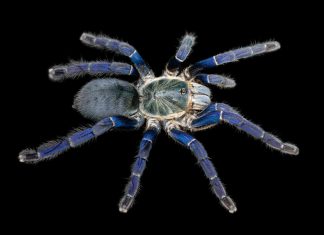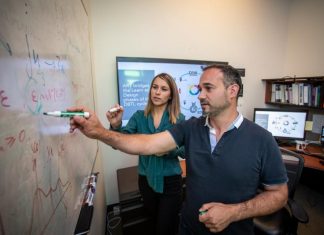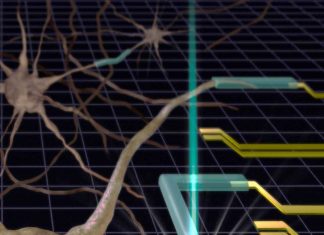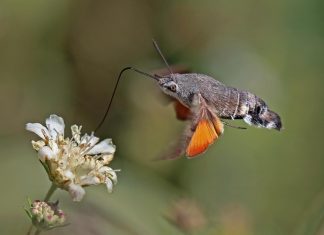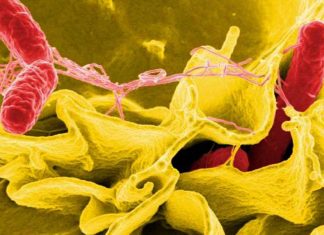Study: Chromium steel was first made in ancient Persia
Chromium steel - similar to what we know today as tool steel - was first made in Persia, nearly a millennium earlier than experts previously thought, according to a new study led by UCL...
Researchers discover why tarantulas come in vivid blues and greens
Researchers from Yale-NUS College and Carnegie Mellon University have discovered that tarantulas have the ability to see in colour, contrary to previous thought, and suggest functions for their green and blue colouration.
Why are some...
Machine learning takes on synthetic biology: algorithms can bioengineer cells for you (Study)
If you've eaten vegan burgers that taste like meat or used synthetic collagen in your beauty routine - both products that are "grown" in the lab - then you've benefited from synthetic biology. It's...
Study: Genome of Alexander Fleming’s original penicillin-producing mould sequenced
Researchers have sequenced the genome of Alexander Fleming's penicillin mould for the first time and compared it to later versions.
Alexander Fleming famously discovered the first antibiotic, penicillin, in 1928 while working at St Mary's...
Study: SLAC invention could make particle accelerators 10 times smaller
Particle accelerators generate high-energy beams of electrons, protons and ions for a wide range of applications, including particle colliders that shed light on nature's subatomic components, X-ray lasers that film atoms and molecules during...
NIST researchers get soft on 3D printing
Researchers at the National Institute of Standards and Technology (NIST) have developed a new method of 3D-printing gels and other soft materials. Published in a new paper, it has the potential to create complex...
Study: New theory predicts movement of different animals using sensing to search
All animals great and small live every day in an uncertain world. Whether you are a human being or an insect, you rely on your senses to help you navigate and survive in your...
Study: New technology is a ‘science multiplier’ for astronomy
Federal funding of new technology is crucial for astronomy, according to results of a study released Sept. 21 in the Journal of Astronomical Telescopes, Instruments and Systems.
The study tracked the long-term impact of early...
Scientists uncover tools used by predatory bacteria to escape unharmed from prey cell
Predatory bacteria, capable of invading and consuming harmful bugs such as E .coli and Salmonella, use a unique tool to help them escape the cell they have invaded without harming themselves, according to a...
Study: 40% of O’ahu, Hawai’i beaches could be lost by mid-century
The reactive and piecemeal approach historically used to manage beaches in Hawai'i has failed to protect them. If policies are not changed, as much as 40% of all beaches on O'ahu, Hawai'i could be...


